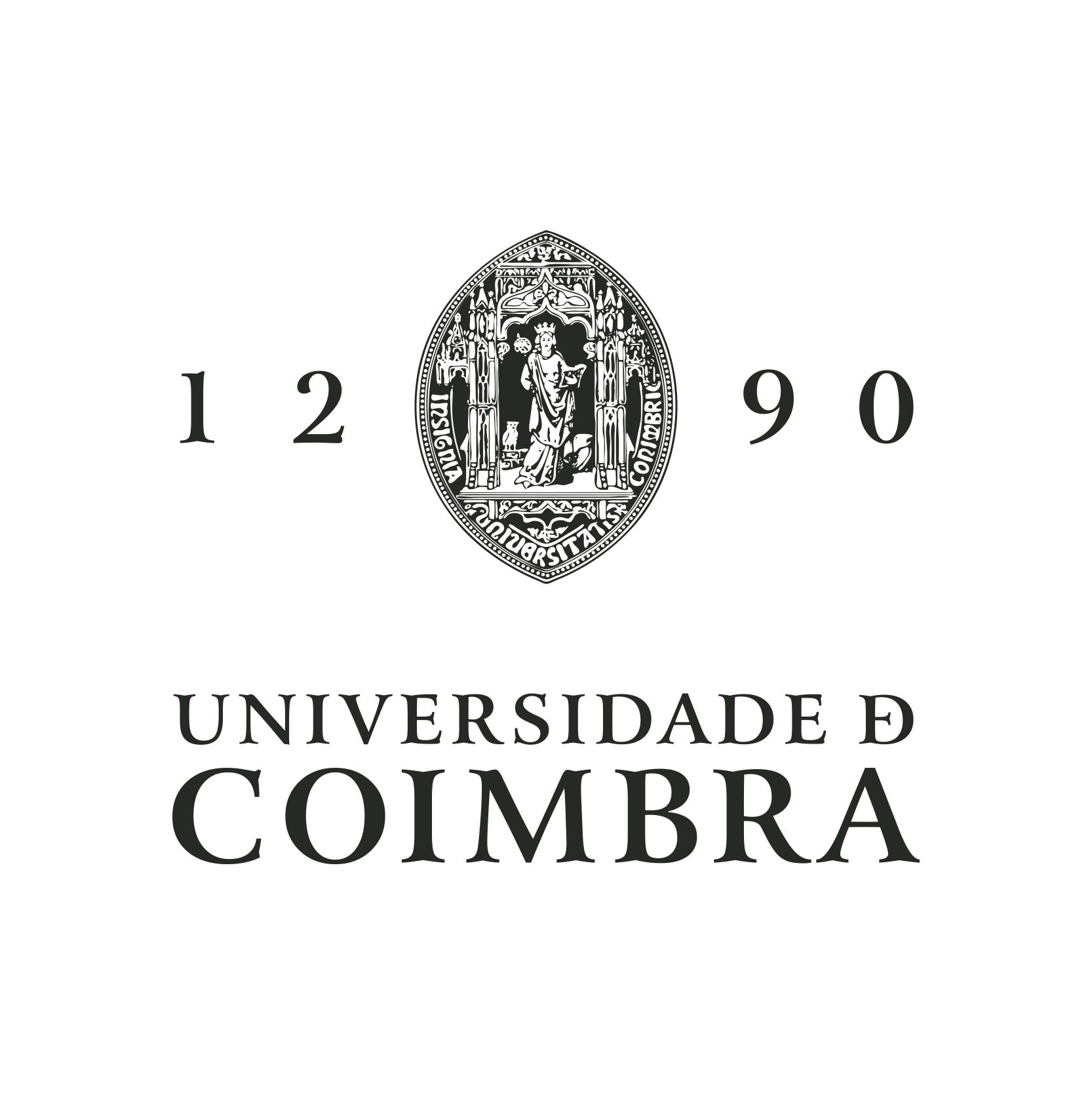Uncategorised
- Details
- Written by Super User
- Category: Uncategorised
- Hits: 20026
Table of contents
- The ADVANCE project
- Dealing with Zero-Day Attacks through Unsupervised Anomaly-Based Intrusion Detection
- The ISO26262:2018 Functional Safety Standard for Road Vehicles
- Verification and Validation in the context of space system engineering
- Qualitative modeling: foundations and applications
- Impact Analysis in IT/OT Systems
- Model-Based Systems Engineering: When, How and Why to Use It?
- Safe Reinforcement Learning
- Panel Discussion - AI in Critical Systems
- Fault Injection Techniques: overview of recent advances
- Robustness testing of REST services
- Using Fault Injection in CubeSat System
- Closing words
- Assessing Semantics of Modeling Languages
- Model-Driven Engineering
- Design of Small Satellite Constellations for Data Communication
The ADVANCE project
- Abstract: In the last decade, technology has rapidly expanded to multiple aspects of our lives. The physical world is being constantly enhanced by technology and connectivity, for reasons ranging from improvement in our lives to pure entertainment. Examples of this trend are evident in emerging technologies like autonomous transportation, smart cities, home and industry automation. The scientific community identifies such kind of systems as Cyber-Physical Systems (CPSs), that is, systems where the physical aspects are deeply integrated with the communication and computing (cyber) parts.
The tight interaction with the physical world often means that CPSs, if not operating properly, can cause harm to users and/or the environment. In other words, CPSs are often safety-critical systems, and must therefore be subject to a rigorous Verification and Validation (V&V) process to heck if they meet the specifications and fulfill the intended use, goals and objectives. This talk provides an overview on the ADVANCE project, whose scientific objective is to conceive new approaches to support the Verification and Validation (V&V) of Cyber-Physical Systems (CPS). In order to achieve this goal, the project consortium is researching new techniques, methods, and tools to improve the effectiveness and efficacy of the V&V process. Furthermore, the ADVANCE project also has the strategic objective of creating an international network of expertise and collaboration in the context of V&V of cyber-physical systems, and training skilled professionals in V&V, software testing, and Information and Communication Technology (ICT). - Speaker: Paolo Lollini (UNIFI)
- Recording and presentation
Dealing with Zero-Day Attacks through Unsupervised Anomaly-Based Intrusion Detection
- Abstract: Anomaly detection aims at identifying patterns in data that do not conform to the expected behaviour, relying on machine-learning algorithms that are suited for binary classification. It has been arising as one of the most promising techniques to suspect attacks or failures, as it has the potential to identify errors due to unknown faults as well as intrusions and zero-day attacks. This tutorial will discuss in detail attack detection through unsupervised anomaly detection, and will review the construction of an evaluation campaign through i) the identification of the attack models and datasets, ii) the selection and discussion of unsupervised algorithms, iii) the identification of target metrics, iv) the execution of the algorithms and v) their comparison. Attendees will also be involved in an hands-on session where algorithms will be executed on public attack datasets thanks to Python scripts, which will be provided to the audience and are ready to be executed also by non-experts that start approaching binary classification using ML algorithms.
- Speakers: Tommaso Zoppi, Andrea Bondavalli (CINI UNIFI)
- Part I - Recording and presentation
- Part II - Recording and presentation
The ISO26262:2018 Functional Safety Standard for Road Vehicles
- Abstract: This talk provides a high level introduction to the Functional Safety Standards commonly used to achieve functional safety in modern safety critical product and infrastructures. In particular the ISO26262:2018 safety standards for Functional safety in Road Vehicles will be presented and explained. It will be provided a close view of the project independent processes that shall be well established in companies operating in such domains as well as project dependent activities that aims to reduce the occurrence of systematic and random failures in automotive systems in order to be compliant to the four Automotive Safety Integrity Levels (ASIL A B C D).
- Speakers: Francesco Brancati (ResilTech)
- Recording and presentation
Verification and Validation in the context of space system engineering
- Abstract: System engineering is the disciplined understanding of “how all the pieces work together”. Space system engineering approaches are applicable at all levels of the space sector by individuals with such varied positions as spacecraft system engineer, mission designer, and Minister of Space. The lecture introduces the key elements of a space mission and focuses on the role of the requirements specification, verification and validation for achieving a desirable end product. Using the BEDCS case study offered by INPE for the ADVANCE project, the life cycle of a space mission will be highlighted. The objective is to discuss how a balanced solution for a space system can be verified and validated to meet the expectations of the “stakeholders” throughout the entire life cycle of the system.
- Speaker: Fátima Mattiello (INPE)
- Recording and presentation
Qualitative modeling: foundations and applications
- Abstract: A critical factor in the quality of any model-based design and V&V is the faithfulness of the underlying model. The domain expert who creates and verifies the models and interprets and explains the results of the V&V process plays a key role here. Human, particularly technical thinking, is qualitative (small-medium-large, slow-fast). Qualitative modeling and reasoning automate this thinking with a sound mathematical basis and efficient IT implementation. Its basic idea is to cluster domains of continuous values exposing identical phenomena into a single qualitative value. This discrete abstraction results in high information compression, simultaneously preserving the essential properties. It facilitates the use of a vast repertoire of discrete formal methods. The qualitative models and analysis results are well-explainable thanks to being close to engineering thinking.
- Speaker: András Pataricza (BME)
- Recording and presentation
Impact Analysis in IT/OT Systems
- Abstract: The increased cyber-attack surface in Cyber-Physical Systems, the close coupling to vulnerable physical processes, and the potential for human casualties necessitate a careful extension of traditional safety methodologies, e.g., error propagation analysis (EPA), with cybersecurity capabilities. Successful attacks intruding on the physical part of the system can cause severe or even catastrophic losses. The talk focuses on a model-based system engineering (MBSE) solution for the assessment and mitigation strategy design approach where the proper quality of the security assessment is assured by using embedded formal methods.
- Speaker: András Földvári (BME)
- Recording and presentation
Model-Based Systems Engineering: When, How and Why to Use It?
- Abstract: Model-based systems engineering (MBSE) is gaining prevalence in the development of complex cyber-physical systems, among others, in nanosatellites used in different space missions. MBSE approaches promote the application of reusable models defined in high-level modeling languages, e.g., SysML. Such languages provide means to define the system in a platform-independent way, both in terms of component behavior and system structure. The emergent models then can be tailored to various platforms to support the conduction of various functional and extra-functional analyses and the automated generation of implementation or configuration artifacts utilizing integrated tool support. This lecture overviews the foundations of MBSE, including its basic concepts, different aspects of modeling and prevalent modeling methodologies. Next, it introduces concepts related to platform-based design and outlines some general principles that should be followed in the process. Finally, the lecture overviews different types of modeling languages and tools that can be used for the design and analysis of the system in different development stages. The lecture relies on the Gamma Statechart Composition Framework, an open source modeling tool for the component-based design and analysis of reactive systems, to showcase the power of tool-supported MBSE while incorporating examples from the aerospace industry.
- Speaker: Bence Graics (BME)
- Recording and presentation
Safe Reinforcement Learning
- Abstract: This talk delves into the critical intersection of reinforcement learning (RL) and safety, highlighting how this dynamic field holds the key to developing intelligent systems that can operate reliably in complex and uncertain environments. As industries continue to integrate AI and automation, ensuring the safety of these systems becomes paramount. The presentation will introduce the foundational concepts of RL and its applications, emphasizing how RL algorithms can learn from both successes and failures to make informed decisions while adhering to safety constraints. Through a selection of case studies from autonomous vehicles, industrial automation, and healthcare, the audience will gain insights into how RL can be tailored to address safety concerns. Moreover, the talk will explore cutting-edge techniques that integrate safety considerations directly into the RL framework, enabling the creation of systems that not only learn optimally but also prioritize safety at all times.
- Speaker: Esther Colombini (Unicamp)
- Recording and presentation
Panel Discussion - AI in Critical Systems
Fault Injection Techniques: overview of recent advances
- Abstract: Software-implemented fault injection uses software-based approaches to emulate the effect of faults in a real system. It produces representative results that are accurate and similar to those caused by 'true' faults, while taking advantage of the flexibility and controllability of software-based methods. These characteristics have made it a perfect technique for ensuring safety and evaluating the dependability of any type of system, including those that are sent to outer space. In this module, we will look into the most common approaches for emulating hardware and software faults and briefly discuss possible optimizations, providing an overview of the recent advances in fault injection in different application domains.
- Speaker: Frederico Cerveira (CISUC)
- Recording and presentation
Robustness testing of REST services
- Abstract: REST services are nowadays being used to support many businesses, with most major companies exposing their services via REST interfaces (e.g., Google, Amazon, Instagram, and Slack). In this type of scenarios, heterogeneity is prevalent and software is sometimes exposed to unexpected conditions that may activate residual bugs, leading service operations to fail. Such failures may lead to financial or reputation losses (e.g., information disclosure). Although techniques and tools for assessing robustness have been thoroughly studied and applied to a large diversity of domains, REST services still lack practical approaches that specialize in robustness evaluation. In this presentation, we introduce a tool (named bBOXRT) for performing robustness tests over REST services, solely based on minimal information expressed in their interface descriptions. We used bBOXRT to evaluate an heterogeneous set of 52 REST services that comprise 1,351 operations and fit in distinct categories (e.g., public, private, in-house). We were able to disclose several different types of robustness problems, including issues in services with strong reliability requirements and also a few security vulnerabilities. The results show that REST services are being deployed preserving software defects that harm service integration, and also carrying security vulnerabilities that can be exploited by malicious users.
- Speaker: Nuno Laranjeiro (CISUC)
- Recording and presentation
Using Fault Injection in CubeSat System
- Abstract: CubeSats are an established trend in the space industry. The CubeSat standard opens opportunities for rapid and low-cost access to space. The use of COTS components instead of space-hardened hardware greatly reduces the cost of CubeSat-based missions and provides the additional benefit of increasing software functionalities at a low power consumption. However, COTS components are not designed for the space environment, making CubeSats sensitive to space radiation. This means that CubeSats need additional software mechanisms to guarantee resilient behavior in the presence of space radiation. Our idea is that such software implemented fault tolerance mechanisms must be tailored to the specific code running in each CubeSat and the logical way to achieve that is to extend the software development process for CubeSats to include the systematic resilience evaluation of software as part of the CubeSats software lifecycle process.
This presentation proposes a set of structured steps to enhance the classic software development process used in CubeSats, focusing particularly on the Verification and Validation (V&V) phase. The approach uses fault injection as an integral part of the development environment for CubeSats software and includes three major steps: a) sensitivity evaluation (verification) of software in the presence of faults caused by space radiation, b) strengthen of the software with targeted software implemented fault tolerance (SWIFT) mechanisms and c) validation of the effectiveness of the SWIFT mechanisms to confirm that the software is immune to space radiation faults. These added steps to the V&V process must be carried out during software development, as well as every time the CubeSat software has an update, or even a minor change, to ensure that the impact of faults caused by space radiation is tolerated by the CubeSat software.
The talk will present the necessary background on fault injection and on software implemented fault tolerance and presents three examples of embedded software running in the EDC (Environment Data Collection) CubeSat board, which is part (payload) of a constellation of satellites being developed by the Brazilian National Institute for Space Research (INPE). EDC use case provides a realistic insight on the effectiveness of the proposed steps. Our results show that the proposed approach can reduce the percentage of silent data corruption (the most problematic failure mode) from the range of 15% to less than 1% and even to 0% in some embedded software, meaning that the CubeSat software becomes immune to space radiation. -
Speaker: Henrique Madeira (UC)
- Recording and presentation
Closing words
Assessing Semantics of Modeling Languages
- Abstract: Assessing Semantics of Modeling Languages: The verification and validation activities of executable models have an inherent, hidden assumption that the understanding of the modeling language’s semantics is consistent between the various engineers and analysis and verification tools. However, these are usually inconsistent and misaligned, leading to subtle differences that could cause critical, non-deterministic bugs that are incredibly challenging to find. The training material will use the Precise Semantics of UML State Machines (PSSM) as a case study to demonstrate such issues and recommend methods to assess and align the semantics of behavioral modeling languages.
- Author: Márton Elekes (BME), Vince Molnár (BME), Zoltán Micskei (BME)
- Presentation
Model-Driven Engineering: principles, tools and its application for dependability analysis
- Abstract: In the life cycle of critical systems, the evaluation of dependability, performance and performability properties plays a fundamental role. This is often a complex and error-prone activity that requires the involvement of domain experts and the usage of very specialized modelling formalisms (e.g., Petri nets). Anyway, there are some aspects involved in this activity that are always the same (especially once the system domain is fixed), meaning that Model-Driven Engineering (MDE) can be a good solution to deal with this complex task. The usage of MDE for performance and dependability analysis can have several benefits, including reusability and time and cost reduction. Several applications of MDE for dependability analysis have been proposed in the literature, for example, the Template Model Definition Language (TMDL), a framework for the specification and automated composition of model templates, and their subsequent transformation into concrete analysable models. The TMDL is part of the D2.1 deliverable of the ADVANCE project. The produced training material will include an introduction to the theoretical foundations of MDE, together with some practical applications for the dependability analysis, such as the TMDL framework.
- Author: Leonardo Montecchi (UNICAMP & NTNU)
- Presentation
Design of Small Satellite Constellations for Data Communication
- Abstract: Constellations of satellites, in particular using small satellites, are very popular nowadays, because they give reduced costs and flexibility to missions. This research considers the problem of designing a constellation of small satellites for data communication, which means getting data from platforms fixed on the surface of the Earth and sending them to ground stations using satellites. The goal is to get reasonable observation times (at least 5% of the time) and a maximum of one hour for the interval between passages by these platforms, while minimizing the number of satellites. The time evolution of the constellation under the effects of perturbation forces is also studied, and estimates of the number of new satellites that need to be added to the constellation to keep the constraint of maximum revisit time below one hour are made. After that, simulations of satellite failures allow verification of the new values for the observation times and the time between visits when the constellation loses some satellites, looking for the possibility of using this constellation even in case of failures. To conclude, it is studied the effects of the injection errors of the satellites in their orbits in the important parameters observational time, mean and maximum revisit times and the savings provided by low thrust maneuvers.
- Author: Antonio Prado, Leonardo B. T. Santos (INPE)
- Presentation
You can find the training material here: LINK
- Details
- Written by Akos Hajdu
- Category: Uncategorised
- Hits: 17288
Publications supported by the ADVANCE project
- A. Prado, P. Carvalho, P. Lollini, F. Mariotti, F. Mattiello-Francisco, L. Santos, L. Pacheco and L. Silva. Design of small satellite constellations for data communication. In: MATHEMATICS IN ENGINEERING, SCIENCE AND AEROSPACE, 2024, 15: 659-672., 15(3), pp.659-672 (Author's version)
- F. Mariotti, P. Lollini and F. Mattiello-Francisco, "The GOLDS satellite constellation: preparatory works for a model-based performability analysis," 2023 IEEE 34th International Symposium on Software Reliability Engineering Workshops (ISSREW), Florence, Italy, 2023, pp. 162-163, doi: 10.1109/ISSREW60843.2023.00067. (Author's version)
- Földvári, A., Brancati, F. and Pataricza, A., "Preliminary Risk and Mitigation Assessment in Cyber-Physical Systems." 2023 53rd Annual IEEE/IFIP International Conference on Dependable Systems and Networks Workshops (DSN-W). IEEE, 2023. doi: 10.1109/DSN-W58399.2023.00067 (Author's version)
- D. Paiva, R. Lima, M. Carvalho, F. Mattiello-Francisco, H. Madeira. "Enhanced software development process for CubeSats to cope with space radiation faults". In: Proc. of IEEE 27th Pacific Rim International Symposium on Dependable Computing (PRDC), 2022. DOI: 10.1109/PRDC55274.2022.00022 (Author's version)
-
L. Montecchi, P. Lollini, A. Bondavalli. Stochastic Activity Networks Templates: Supporting Variability in Performability Models. In: IEEE Transactions on Reliability, Vol. 71, Issue 2, pp. 640-656, 2022. (Open access).
- Casare A., da Silva C., Basso, T., Moraes R. "Using a quality model to evaluate user interface trustworthiness of e-commerce systems: scoring strategies and preliminary results". In: Proc. of the 17th International Joint Conference on Computer Vision, Imaging and Computer Graphics Theory and Applications - HUCAPP, on-line, February 6-8, pp. 209-216, 2022. (Open access)
- Á. Hajdu, N. Ivaki, I. Kocsis, A. Klenik L. Gönczy, N. Laranjeiro, H. Madeira, A. Pataricza. Using Fault Injection to Assess Blockchain Systems in Presence of Faulty Smart Contracts. IEEE Access, 2020. (Open access) DOI: 10.1109/ACCESS.2020.3032239
- L. Leal, L. Montecchi, A. Ceccarelli, E. Martins. Using Metamodels to Improve Model-Based Testing of Service Orchestrations. In: 25th IEEE Pacific Rim International Symposium on Dependable Computing (PRDC 2020) Perth, Australia, December 1-4, 2020. (Authors' version)
-
E. Rodrigues Jr., L. Montecchi, A. Ceccarelli. Model-Driven Fault Injection in Java Source Code. In: 31st International Symposium on Software Reliability Engineering (ISSRE 2020). Coimbra, Portugal, October 12-15, 2020. DOI: 10.1109/ISSRE5003.2020.00046 (Authors' version)
- L. Montecchi, F. Moncini, P. Lollini, K. Keefe. An Eclipse-Based Editor for SAN Templates. In: 12th International Workshop on Software Engineering for Resilient Systems (SERENE 2020), pp. 159-167. Munich, Germany, September 7, 2020. DOI: 10.1007/978-3-030-58462-7_13. (Authors' version)
- N. Laranjeiro, C. Gomez, E. Schiavone, L. Montecchi, M. J. M. Carvalho, P. Lollini and Z. Micskei. Addressing Verification and Validation Challenges in Future Cyber-Physical Systems. In: 9th Latin-American Symposium on Dependable Computing (LADC), 2019. DOI: 10.1109/LADC48089.2019.8995714. (Authors' version)
- L. Leal, L. Montecchi, A. Ceccarelli, E. Martins. Exploiting MDE for Platform-Independent Testing of Service Orchestrations. In: 15th European Dependable Computing Conference (EDCC 2019), pp. 149-152. Naples, Italy, September 17-20, 2019. DOI: 10.1109/EDCC.2019.00037 (Authors' version)
- D. Sierra, L. Montecchi, I. Mura. Stochastic Modeling and Analysis of Vapor Cloud Explosions Domino Effects in Chemical Plants. In: Journal of the Brazilian Computer Society, Vol. 25, pp. 11:1-11:19 (October 2019). DOI: 10.1186/s13173-019-0092-8 (Open Access)
Publications related to the ADVANCE project
-
Ivo, A. S.; Ribeiro, S. G.; Mattiello-Francisco, F.; Bondavalli, A. Toward Conceptual Analysis of Cyber-Physical Systems Projects Focusing on the Composition of Legacy Systems. IEEE Access, v. 11, 2023. DOI: 10.1109/ACCESS.2023.3284039
-
C. L. G. Batista, A. Foldvari, A. Pataricza, F. Mattiello-Francisco. Resources/Services/Demands Relationship on a Federated Cubesat Constellation System Operation. In: 17th International Conference on Space Operations (SpaceOps 2023) 6th-10th March 2023 Dubai, UAE
- L. Sarti, H. Bruno, T. Puccetti, E. Colombini and A. Ceccarelli, "Towards Robust Visual Odometry Systems Against Camera Lens Failures," 2023 IEEE 34th International Symposium on Software Reliability Engineering Workshops (ISSREW), Florence, Italy, 2023, pp. 164-165, doi: 10.1109/ISSREW60843.2023.00068.
- M. Elekes, V. Molnár, Z. Micskei. "Assessing the specification of modelling language semantics: a study on UML PSSM". In: Software Quality Journal, 1-42, 2023. doi: 10.1007/s11219-023-09617-5 (Open Access)
- S. Rodriguez Gonzalez, J. Betancourt Osorio, G. Pardo González, D. Cuellar, C. Gomez, F. Mariotti, L. Montecchi, and P. Lollini. 2023. Modeling attacker behavior in Cyber-Physical-Systems. In Proceedings of the 11th Latin-American Symposium on Dependable Computing (LADC '22). Association for Computing Machinery, New York, NY, USA, 117–124. https://doi.org/10.1145/3569902.3570188
- M. Dobos-Kovács, A. Vörös. "Evaluation of SMT solvers in abstraction-based software model checking". In Proc. of the 11th Latin-American Symposium on Dependable Computing (LADC '22). ACM, 109–116, 2023. doi: 10.1145/3569902.3570187
- D. Paiva, J. M. Duarte, R. Lima, M. Carvalho, F. Mattiello-Francisco and H. Madeira, "Fault injection platform for affordable verification and validation of CubeSats software," 2021 10th Latin-American Symposium on Dependable Computing (LADC), Florianopolis, Brazil, 2021, pp. 1-11, doi: 10.1109/LADC53747.2021.9672584.
- Tito J., Basso T., Moraes R. "ORUN - A virtual reality serious-game for kinematics learning". In: Proc. of IEEE Conf. on Virtual Reality and 3D User Interfaces Abstracts and Workshops - VRW, on-line, pp. 978-979, 2022.
- Casare A., da Silva C., Moraes R. "Do dependable systems need good user interfaces?". In: Proc. of the 11th Latin-American Symposium on Dependable Computing, Fortaleza, Brasil, November 21-26, pp. 1-8, 2022.
- Terrosi, Francesco, Andrea Ceccarelli, and Andrea Bondavalli. "Failure modes and failure mitigation in GPGPUs: a reference model and its application." 2022 IEEE 46th Annual Computers, Software, and Applications Conference (COMPSAC). IEEE, 2022.
- Atif, Muhammad, et al. "Robust Traffic Sign Recognition Against Camera Failures." IEEE Open Journal of Intelligent Transportation Systems 3 (2022): 709-722. https://doi.org/10.1109/OJITS.2022.3213183 (Open Access)
- Gharib, Mohamad, et al. "A cyber–physical–social approach for engineering Functional Safety Requirements for automotive systems." Journal of Systems and Software 189 (2022): 111310.
- Ceccarelli, Andrea, and Francesco Secci. "RGB cameras failures and their effects in autonomous driving applications." IEEE Transactions on Dependable and Secure Computing (2022).
- Atif, Muhammad, et al. "Towards enhancing traffic sign recognition through sliding windows." Sensors 22.7 (2022): 2683. https://doi.org/10.3390/s22072683 (Open Access)
- Danilo Pallamin de Almeida; Bence Graics; Ronan Arraes Jardim Chagas; Fabiano Luis de Sousa; Fatima Mattiello-Francisco. "Towards Simulation of CubeSat Operational Scenarios under a Cyber-Physical Systems View". 10th Latin-American Symposium on Dependable Computing (LADC), DOI: 10.1109/LADC53747.2021.9672594 (2021)
- Piazzesi, Niccolò, Massimo Hong, and Andrea Ceccarelli. "Attack and Fault Injection in Self-driving Agents on the Carla Simulator–Experience Report." International Conference on Computer Safety, Reliability, and Security. Springer, Cham, 2021.
- Zoppi, Tommaso, and Andrea Ceccarelli. "Detect Adversarial Attacks Against Deep Neural Networks With GPU Monitoring." IEEE Access 9 (2021): 150579-150591.
- Zoppi, Tommaso, Andrea Ceccarelli, and Andrea Bondavalli. "Detecting Intrusions by Voting Diverse Machine Learners: Is It Really Worth?." 2021 IEEE 26th Pacific Rim International Symposium on Dependable Computing (PRDC). IEEE, 2021.
- Zoppi, Tommaso, et al. "Unsupervised anomaly detectors to detect intrusions in the current threat landscape." ACM/IMS Transactions on Data Science 2.2 (2021): 1-26.
- Zoppi, Tommaso, Andrea Ceccarelli, and Andrea Bondavalli. "Unsupervised algorithms to detect zero-day attacks: Strategy and application." Ieee Access 9 (2021): 90603-90615.
- Zoppi, Tommaso, and Andrea Ceccarelli. "Prepare for trouble and make it double! Supervised–Unsupervised stacking for anomaly-based intrusion detection." Journal of Network and Computer Applications 189 (2021): 103106.
- Gharib, Mohamad, Leandro Dias da Silva, and Andrea Ceccarelli. "A model to discipline autonomy in cyber‐physical systems‐of‐systems and its application." Journal of Software: Evolution and Process9 (2021): e2328.
- Atif, Muhammad, Andrea Ceccarelli, and Andrea Bondavalli. "Reliable Traffic Sign Recognition System." Anais Estendidos do X Latin-American Symposium on Dependable Computing. SBC, 2021. https://doi.org/10.5753/ladc.2021.18528
- Atif, Muhammad, et al. "Quantitative comparison of supervised algorithms and feature sets for traffic sign recognition." Proceedings of the 36th Annual ACM Symposium on Applied Computing . 2021. https://doi.org/10.1145/3412841.3442072
- Casare, Andréia Rodrigues; Silva, C. G. ; Moraes, R. L. O. ; Basso, T. . Towards Usability Interface Trustworthiness in e-Commerce Systems. In: 15th International Conference on Interfaces and Human Computer Interaction, 2021, Virtual. Proc. of the 15th International Conference on Interfaces and Human Computer Interaction, 2021. v. 1. p. 1-8.
- G. Lopes, L. Montecchi. Characterizing and Injecting Faults in Executable Models Specified with fUML. In: 10th Latin-American Symposium on Dependable Computing (LADC 2021), pp. 1-10. Florianopolis, SC, Brazil, November 22-26, 2021. doi: 10.1109/LADC53747.2021.9672596.
- Batista C., Basso T., Mattiello-Francisco M. F., Moraes R. "Impacts of the Space Technology Evolution in the V&V of Embedded Software-Intensive Systems”. IN: The 2020 International Conference on Computational Science and Computational Intelligence - CSCI 2020, Las Vegas, USA, 16-18 Dec., 2020. (Author's version)
- Secci, Francesco, and Andrea Ceccarelli. On failures of RGB cameras and their effects in autonomous driving applications. In: 31st International Symposium on Software Reliability Engineering (ISSRE 2020). Coimbra, Portugal, October 12-15, 2020. DOI: 10.1109/ISSRE5003.2020.00011 (Author's version)
- Casare, Andréia Rodrigues; Moraes, R. L. O. ; Basso, T. . Trust Metrics to Measure Website User Experience. In: The 2020 International Conference on Computational Science and Computational Intelligence (CSCI), 2020, Valência. Proc. of The 2020 International Conference on Computational Science and Computational Intelligence (CSCI), 2020. v. 1. p. 1-8.
- Zoppi, Tommaso, et al. On the educated selection of unsupervised algorithms via attacks and anomaly classes. Journal of Information Security and Applications 52 (2020). DOI: 10.1016/j.jisa.2020.102474 (Open Access)
- Gharib, Mohamad, et al. Governance & Autonomy. Towards a Governance-based Analysis of Autonomy in Cyber-Physical Systems-of-Systems. 2020 IEEE 15th International Conference of System of Systems Engineering (SoSE). IEEE, 2020. DOI: 10.1109/
SoSE50414.2020.9130527. (Author's version) - João Agnelo, Nuno Laranjeiro, Jorge Bernardino, Using Orthogonal Defect Classification to characterize NoSQL database defects, Journal of Systems and Software, Volume 159, 2020, 110451, DOI: 10.1016/j.jss.2019.110451 (Author's version)
- Fábio Lopes, João Agnelo, César A. Teixeira, Nuno Laranjeiro, Jorge Bernardino, Automating orthogonal defect classification using machine learning algorithms, Future Generation Computer Systems, Volume 102, 2020, Pages 932-947, 10.1016/j.future.2019.09.009 (Author's version)
- M. Gharib and A. Bondavalli. On the Evaluation Measures for Machine Learning Algorithms for Safety-critical Systems. In the 15th European Dependable Computing Conference (EDCC), 2019. DOI: 10.1109/EDCC.2019.00035 (Author's version)
- M. Gharib, P. Lollini and A. Bondavalli. Toward a Model-based Approach for Analyzing Information Quality Requirements for Smart Grid. In Proc. of the International Workshop on Dependable SOlutions for Intelligent Electricity Distribution GRIds (DSOGRI) 2019. DOI: 10.1109/EDCC.2019.00044 (Author's version)
- L. Dias da Silva, D. Mongelli, P. Lollini, A. Bondavalli, G. Mandó. Performability Analysis of a Tramway System with Virtual Tags and Local Positioning. In: 9th Latin-American Symposium on Dependable Computing (LADC), 2019. (Best paper award) DOI: 10.1109/LADC48089.2019.8995712. (Author's version)
- L. Montecchi, P. Lollini, A. Bondavalli. A Template-Based Methodology for the Specification and Automated Composition of Performability Models;. In: IEEE Transactions on Reliability 69:1 (2019). DOI: 10.1109/TR.2019.2898351 (Open Access)
- E. Rodrigues Jr., L. Montecchi. Towards a Structured Specification of Coding Conventions. In: 24th IEEE Pacific Rim International Symposium on Dependable Computing (PRDC 2019), pp. 168-177. Kyoto, Japan, December 1-3, 2019. DOI: 10.1109/PRDC47002.2019.00047 (Authors' version)
- H.Maria Maqsood, Eduardo Guerra, Xiaofeng Wang, Andrea Bondavalli. Patterns for Development of Safety-Critical Systems with Agile: Trace Safety Requirements and Perform Automated Testing. In 25th European Conference on Pattern Languages of Programs 2020 EUROPLOP, Germany, July 1-4, 2020. DOI: 10.5220/0009356403310338 (Authors' version)
- H.Maria Maqsood, Eduardo Guerra, Xiaofeng Wang, Andrea Bondavalli. Teams AND Up-Front Testing for Development of Safety-Critical Systems with Agile. Published in 27th USA CONFERENCE ON PATTERN LANGUAGES OF PROGRAMS USA PLoP 2020, USA, October 12 – 16, 2020. (Authors' version)
- R. Moraes, T. Basso and E. Martins, V-Model Adaptation for Space Systems in Light of the ECSS Standard 2021 10th Latin-American Symposium on Dependable Computing (LADC), 2021, pp. 01-04, doi: 10.1109/LADC53747.2021.9672593.
- Details
- Written by Akos Hajdu
- Category: Uncategorised
- Hits: 31727
Project coordinator
 |
Paolo Lollini Research Associate |
- Details
- Written by Zoltan Micskei
- Category: Uncategorised
- Hits: 36083
The 1st Workshop on vAlidation and verification in FuturE cybeR-physical Systems (WAFERS) will be organized co-Located with the LADC 2019 Conference (Latin-American Dependable Computing) on November 19th Natal, Brasil.
The goal of the workshop is to provide a common forum where researchers from across the world can debate new research ideas and directions on novel dependability assessment approaches for cyber-physical and complex systems by gathering researchers and practitioners working on cypher-physical research topics and related areas such as data communication in cyber-physical networks, safety and security of cyber-physical and critical systems, automated verification and validation of critical systems.
- Details
- Written by Akos Hajdu
- Category: Uncategorised
- Hits: 20179
Consorzio Interuniversitario Nazionale Per L’Informatica (Italy)
|
CINI, a consortium of 44 public Italian universities, is today the main reference for the national academic research in the fields of Computer Engineering, Computer Science, and IT. It supports joint scientific activities of research and technological transfer, with academia, industries, and Public Administrations. The CINI research team participating in ADVANCE is the Local node of CINI at UNIFI (CINI-FI) and in particular the Resilient Computing Lab (RCL). CINI-FI has his main research focus on dependable architectures and systems. The group is currently involved in research spanning two macro areas: (1) architectures and techniques for fault-tolerant systems, infrastructures and networks, and (2) validation of systems dependability, trust and QoS through analytical, simulative and experimental techniques. CINI-FI has extensive previous experience in the field of Verification, Validation, Assessment and Measurement of trustworthiness in critical systems. Key persons: Paolo Lollini (coordinator), Andrea Bondavalli (full professor) |
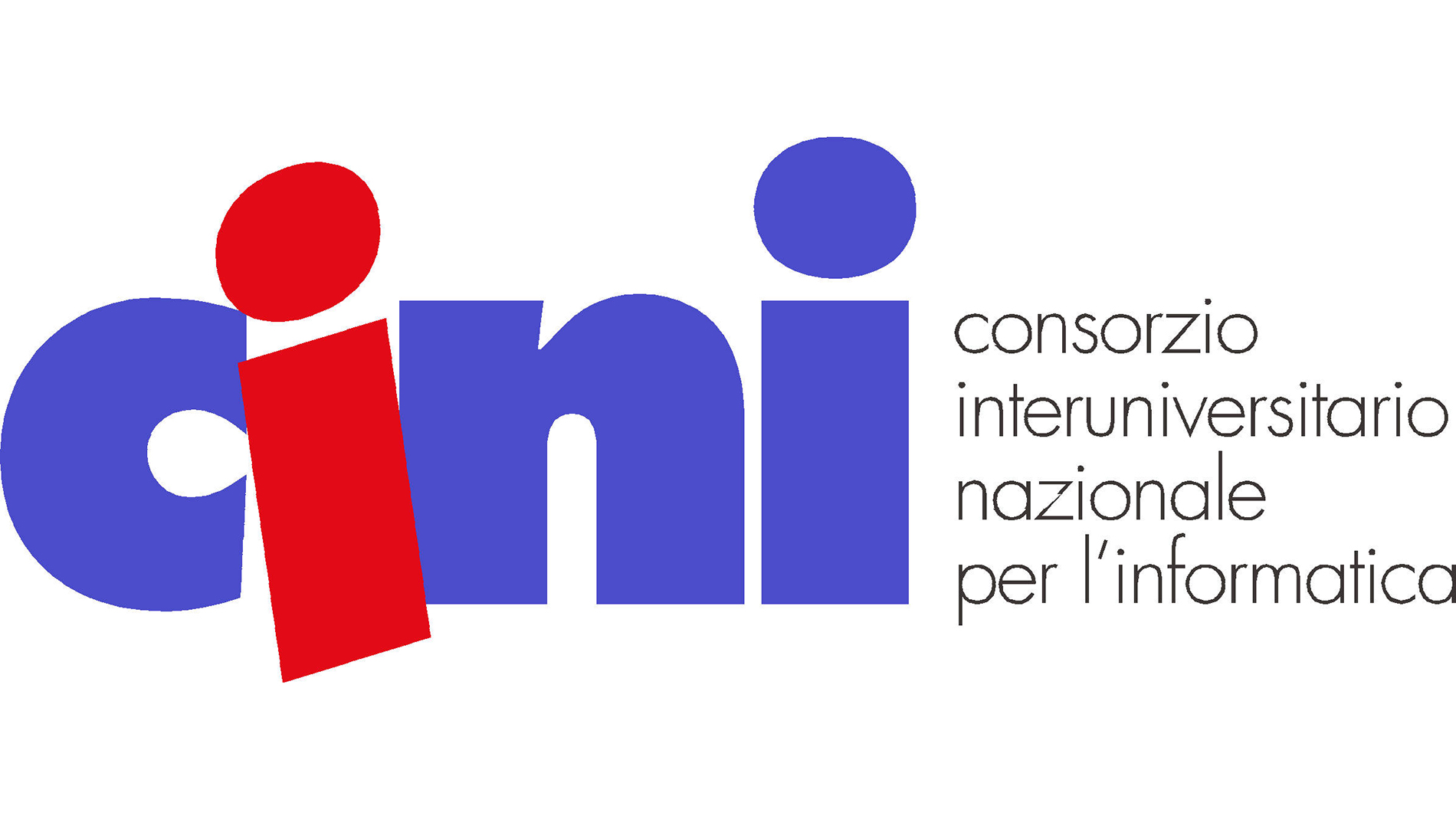 |
Universidade de Coimbra (Portugal)
|
The Systems and Software Engineering (SSE) Group is located at the Centre for Informatics and Systems of the University of Coimbra (CISUC). CISUC is part of the Faculty of Science and Technology of the University of Coimbra (UC), which is a prestigious European Research Higher Education Institution. With around 20000 students, UC is one of the largest Universities in Portugal. The Systems and Software Engineering Group (formerly named Dependable Systems Group) has been active since 1989, and includes 12 professors and 20 Ph.D. students. Key persons: Henrique Madeira (full professor) |
|
Budapest University of Technology and Economics (Hungary)
|
BME is a university with approximately 22.000 students. The Fault Tolerant Systems Research Group at the Dept. of Measurement and Information Systems has his main research focus on dependable and cloud systems, model-driven software development and formal methods. The group is currently involved in research spanning two CPS related macro areas: (1) V&V techniques (2) measurement-based system identification. The FTSRG has extensive experience in V&V, big data-based measurement analysis, critical CPS. The group offers an MSc course on CPS. Key persons: Zoltán Micskei (assistant professor), András Pataricza (full professor) |
 |
Universidad de los Andes (Colombia)
|
According to the QS 2015/2016 University Ranking, UNIANDES was the 283rd top university worldwide. The Dept. of Industrial Engineering at UNIANDES has a total of 1,970 students and 3 research groups that are ranked at the top level according to Colombian research ranking criteria. COPA (Centre for Optimization and Applied Probability) research group supports the decision making process at organizations via the analysis, design and application of operations research and statistical computer-based techniques. Key persons: Ivan Mura (professor) |
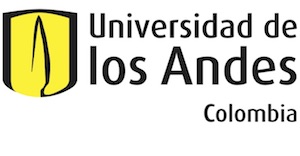 |
ResilTech s.r.l. (Italy)
|
ResilTech is an ICT consultancy company operating in the field of critical systems since early 2008; it is a SME company (~25 employers) that integrates the experiences of R&D in resilient computing with specific industrial skills. These two sectors perfectly integrated inside the company makes of ResilTech an ICT consulting company always aware of leading edge technologies and open to innovation. With such a background the company provides a competitive added value offering leading-edge expertise, consultancy and technical support in the Railway and in the Automotive domains regarding the following three main areas: i) Support to the Architectural design of Resilient and Secure Systems, ii) Verification and Validation of Safety Critical Systems, iii) Dependability and Quality of Service Quantitative Evaluation. Regarding the analysis, design, verification and validation of critical systems, ResilTech expertise covers all the involved aspects: modelling, specification, validation and verification; Hazard Analysis; analysis of Mean Time Between Hazardous Events; Failure Mode and Effect Analysis; System FMEA; planning and management of Safety Cases; Verification and Validation activities planning; Software Quality verification. Regarding the Architectures and Methodologies for Resilient and Secure Systems, ResilTech services encompass from the support to the architectural design of critical ICT systems to the software development of diagnostic libraries for embedded systems. Key persons: Francesco Brancati |
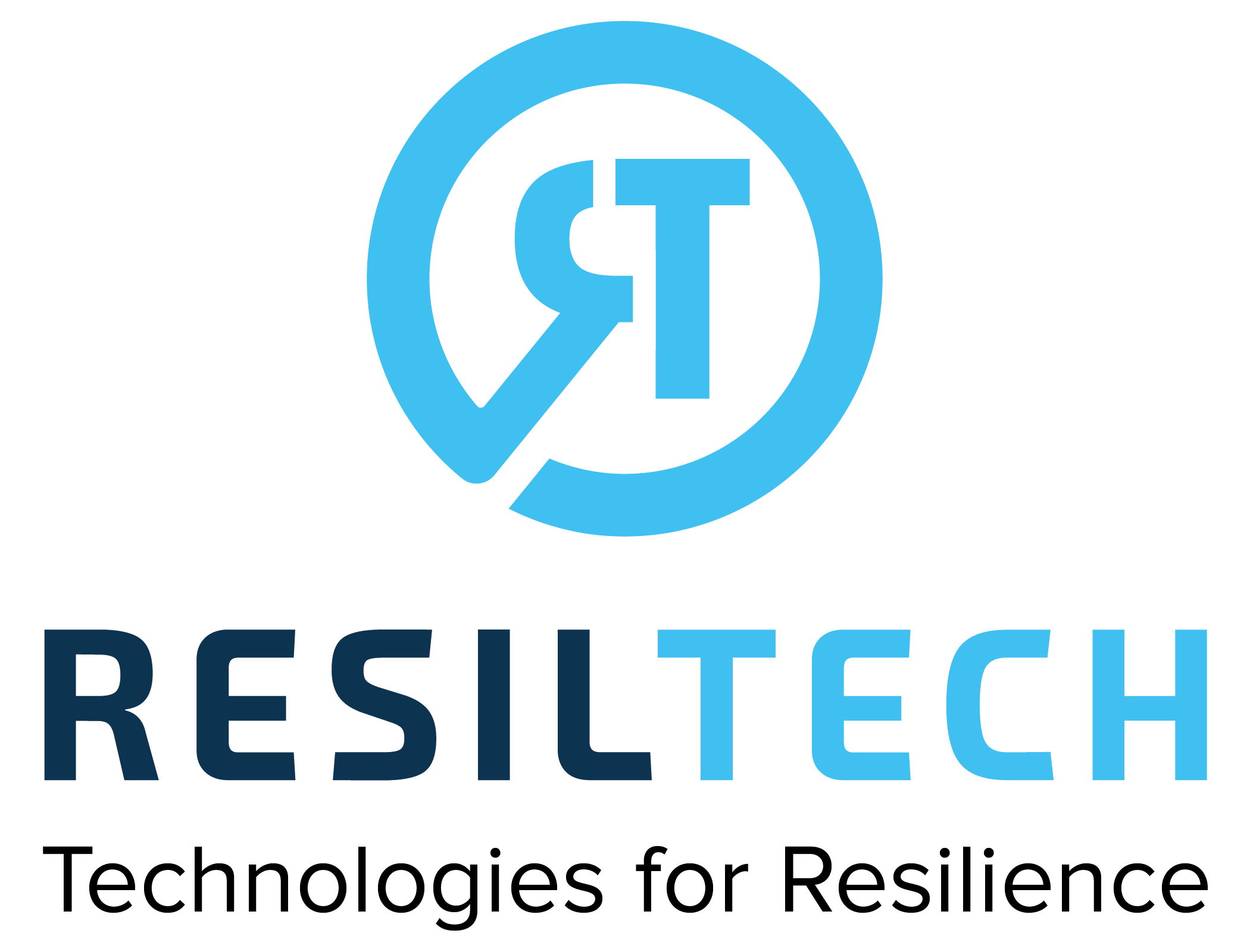 |
Universidade Estadual de Campinas (Brazil)
|
The University of Campinas is a leading Brazilian public university that has attained international recognition for excellence through its innovative approach to higher education. It is the 2nd Latin America's top ten university, and it is the top Brazilian university in number of published articles per faculty members. The UNICAMP group in this project comprises the Institute of Computing (IC) and the School of Technology (FT). Key persons: Leonardo Montecchi (associate professor) |
 |
Instituto Nacional de Pesquisas Espaciais (Brazil)
|
INPE is a governmental civilian organization which develops research in Space and Atmospheric Sciences, Earth Observation and Science, Meteorology and Space Engineering. INPE has graduate schools in these areas with an average of 150 students graduated per year, being 85 MSc and 63 PhD. INPE also provides numerical weather and climate prediction products, applies remote sensing techniques, and develops space systems such as satellites and balloons, and ground segment for spacecraft monitoring, control, and data collection, processing and dissemination. Key persons: Fátima Mattiello-Francisco (senior technologist) |
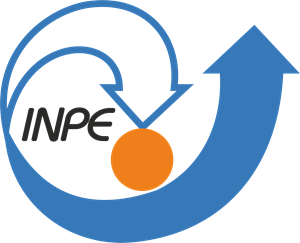 |

